Nigerian Academy of Medicine (NAMED) has called on all stakeholders, particularly government agencies, to foster interprofessional relationships and provide increased funding for health, including the support of the Primary Health Care Under One Roof (PHCUOR) programme, in order to deliver high-quality and patient-centered care and achieve Universal Health Coverage for all.
The NAMed’s Secretary, Prof. Oluwole Atoyebi made the call in Abuja while presenting a communique at the end of the 2023 annual lecture and induction ceremony, where pressing challenges in Nigeria’s healthcare system were discussed
Atoyebi also disclosed that the Academy opened entries for media awards in collaboration with the development Research and Projects Center(dRPC) to amplify the role of the media and the impact and challenges from the PHC levels across Nigeria.
He stated that other categories of the award entries are gender norms, access to PHC services, and delivery of maternal health and routine immunization services within the PHC system.
The lecture, titled: ‘Interprofessional Relationships in the Health Sector: Enhancing the Healthcare Workforce in Nigeria in the Presence of Challenging Demographics’, underscored the vital role of interprofessional relationships in a country grappling with a rapidly growing population of over 215 million.
Atoyebi emphasised that fostering cooperation among healthcare professionals was essential for creating an efficient and comprehensive care system.
He pointed out that the National Health Insurance Authority (NHIA), Act was signed into law in May 2022 as a critical step towards achieving UHC for all Nigerians, as it aimed at providing affordable and high-quality healthcare services, irrespective of income or location.
The lecture delivered by the former minister of health, Prof. Isaac Adewole, also addressed the challenges faced by Nigeria’s healthcare system which include geographical disparities in healthcare workforce distribution, frequent strikes due to various issues, and significant financial losses .
The lecture proposed a series of potential solutions, such as promoting mutual respect among healthcare professionals, improving communication and interprofessional education, and addressing regulatory barriers. It also urged the exploration of innovative financing mechanisms for healthcare.
Meanwhile, the NAMed, President, Prof. Samuel Ohaegbulam, had earlier disclosed that $1 billion is lost yearly to medical tourism and overseas treatment, as he called for urgent steps to reverse the trends
He said it is futile trying to improve primary healthcare, mother and child care, or mental health and others if funding is poor as he described inadequate funding as a hurdle in the health sector
Ohaegbulam observed that the current federal budget for health is equivalent to that of a single hospital in developed countries and that the crash in value of the naira has further worsened matters.
“The consequences of neglecting the sector are obvious and have resulted in growing medical tourism, brain drain, unemployment, and decline in quality of healthcare.
“The academy, by virtue of its unique position, must do everything possible to drive initiative for rescuing the sector,” he added.

